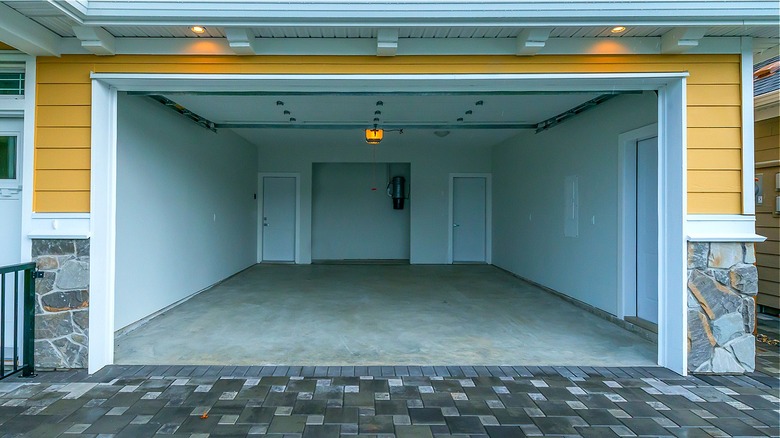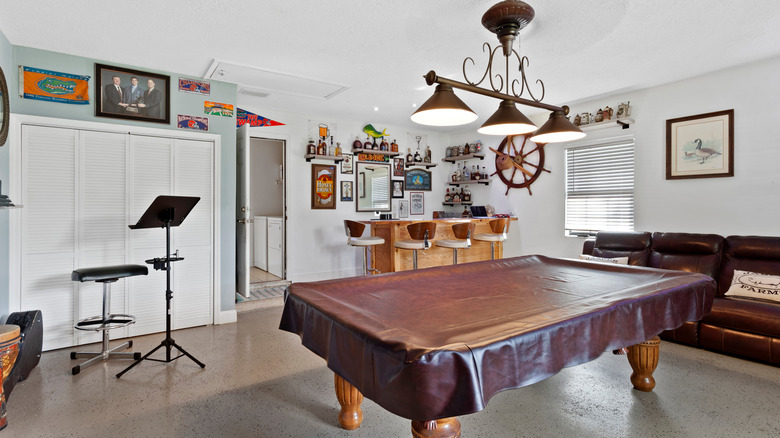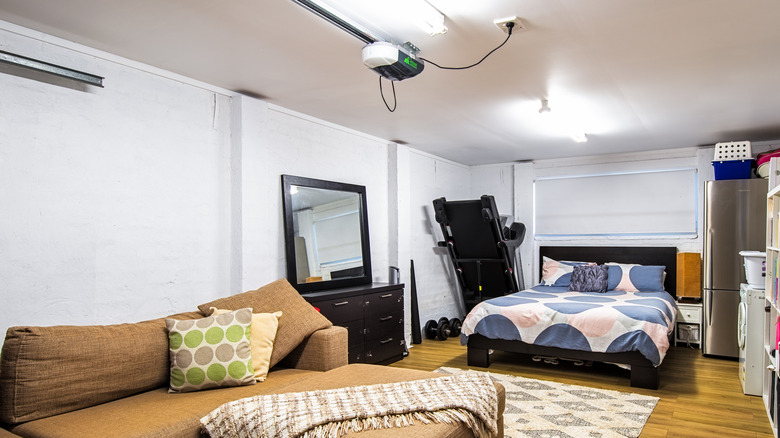How To Know If A Garage Conversion Is Right For Your Space
Converted garages are often a great reuse of space, particularly in areas where real estate is expensive and in high demand. Many homeowners find themselves looking for a way to maximize the existing footprint of their homes without having to add costly additions or secondary structures. This not only avoids gobbling up existing yard and garden square footage, but can sometimes be a good use for an underutilized and unnecessary space.
Garage conversions can be used to expand existing rooms like dining areas and kitchens, or create new spaces like workshops, home offices, and fitness rooms. They're also ideal for adding guest suites or rental units to properties as an extra source of income. If you're thinking of turning your existing garage into something else, there are a few key things to think about, including local ordinances or regulations, as well as what is absolutely necessary in a converted garage.
Is a garage conversion right for you?
Depending on where you live, the functional provisions of a garage can be of more or lesser use to you. In warmer, more temperate climates, storing a car inside isn't always necessary, particularly if you have ample parking in the driveway or on the street. While some municipalities do have ordinances regarding residential parking that may still require the use of a garage to park, you may also want to think about the wear and tear on your car, as well as its security from theft and break-ins, before you begin any garage conversion.
Responses are often mixed on whether or not a garage conversion makes your home more marketable or increases its value, since many new homebuyers may be looking for that dedicated indoor parking that you've now eliminated. There are also other common garage functions to consider, such as using it as a storage space, a laundry room, or a workspace that may be sacrificed with a conversion into a different kind of use.
If you're not in need of parking indoors, however, an underutilized garage can offer a plethora of opportunities for new and innovative spaces, including game rooms, home theaters, and bar/entertainment rooms, all of which can make the home more attractive. Further, since the renovation of a conversion is less complicated than building an addition or dealing with load-bearing elements, it's often a project you can DIY from start to finish and for far less money.
Things to consider when converting your garage
While a garage conversion may seem far simpler than a basement or attic conversion, there are still elements that need to be considered. While you're starting with an existing box and concrete slab, there are still considerable steps that need to be taken, including insulation and finishing of drywall, additional wiring and electrical outlets, and any plumbing, heating, and cooling needs.
Also, professionals usually will recommend raising the floor, since garages often sit low to the ground, which can cause issues with water drainage and pests over the long run. An insulated floor will also be easier to heat than a cold concrete slab whatever variety of flooring you put over it.
Another consideration? The garage door. While some areas have guidelines on whether you'll be able to keep or have to replace your existing garage door, this may be an added expense for removal or insulation of it. Further, existing garage doors are sometimes a perfect opportunity for workshops and indoor-outdoor rooms, such as kitchens and other living spaces that can maintain their outdoor feel but offer enclosure when needed.


